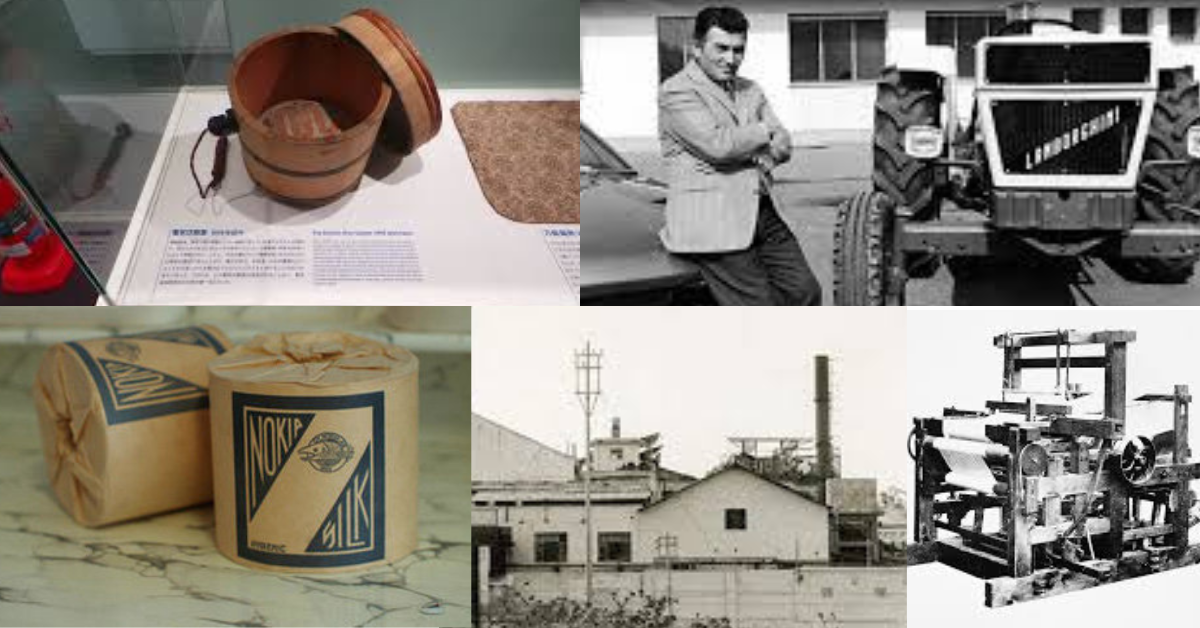1. Sony – Rice Cooker
Before becoming a giant in electronics and entertainment, Sony ventured into kitchen appliances. Their first product, the rice cooker, launched in 1955, marked their entry into the consumer goods market. This appliance showcased Sony’s commitment to innovation even before they became a household name in electronics .
2. Colgate – Hand Soap & Candles
Colgate, founded in 1806, initially produced soap and candles. Their entry into the oral care market began in 1873 when they introduced the first toothpaste in a jar. This transition reflects the brand’s evolution from basic hygiene products to a global leader in oral care .
3. Nokia – Toilet Paper
Before Nokia became synonymous with mobile phones, it started as a pulp mill in 1865. Its first product was toilet paper, reflecting its origins in the forest industry. Over time, Nokia shifted focus to telecommunications and electronics, eventually becoming a pioneer in mobile technology .
4. IKEA – Pens
Founded in 1943, IKEA began by selling simple stationery items like pens and postcards. The company later pivoted to furniture design, becoming a leading name in affordable home furnishings. This early focus on everyday items helped shape IKEA’s approach to consumer needs .
5. Tiffany & Co – Stationery
Established in 1837, Tiffany & Co initially focused on selling stationary and other luxury goods, including fine paper and writing supplies. It wasn’t until the 1850s that the brand began its journey into jewelry, ultimately becoming famous for its exquisite diamond and engagement rings .
6. Samsung – Dried Fish
Samsung started as a trading company in 1938, dealing primarily in groceries and dried fish. It wasn’t until the 1960s that the company diversified into textiles, food processing, and eventually electronics, becoming a global powerhouse .
7. Toyota – Automatic Loom
Toyota began in 1937 as a division of Toyoda Automatic Loom Works, focusing on manufacturing looms. Their first product was the Type A automatic loom, which laid the foundation for Toyota’s transition into the automobile industry, eventually leading to their status as a leading car manufacturer .
8. Lamborghini – Tractors
Before venturing into luxury sports cars, Ferruccio Lamborghini founded Lamborghini Trattori in 1948, producing tractors from surplus military parts. This success in the agricultural sector provided the capital needed to launch the iconic Lamborghini sports car brand .
9. LG – Face Cream
LG, originally known as Lak-Hui (pronounced “Lucky”) in 1947, began by producing household goods, including face cream and cosmetics. This focus on beauty products paved the way for LG’s growth into the electronics and home appliance sectors .
10. Wipro – Vegetable Oil
Founded in 1945 as Western India Vegetable Products Limited, Wipro initially produced vegetable oils. The company gradually expanded into the IT sector in the 1980s and has since become a major player in global technology and consulting .
These unusual first products highlight the diverse paths these iconic brands took before achieving their current status. Each company’s origins reflect a unique approach to innovation and adaptability, illustrating how foundational experiences can shape a brand’s evolution and success in the global market.



